Attitude a 3 Week Sermon Series
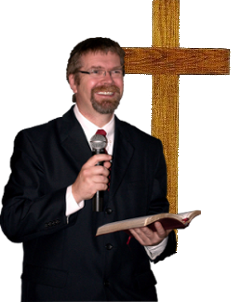 Attitude Part 01
Attitude Part 01
A number of years ago I was shocked to read about the death of Freddie Gray and the riots that followed all of this, and at that time it became overly clear that people were so polarized that journalism disappeared and was replaced by opinion writing.
The journalist clearly showed herself not as a journalist at all, but as an opinion writer, focused on the rioters as protesters and how black and white work together. Then she turned to the police and stated that the young man did not die, but used the word "murdered" and stated that those charged were 3 white and 3 black officers.
It is for me more than a coincidence that the officers were indeed 3 whites and 3 blacks. The peace returned for now, but at what price? Getting what you want by the use of destruction, rioting, civil disobedience to authority, and all that behind masks and bandannas is, in my opinion, showing something illegal.
When you need to get your way in this form, it is indeed forcing somebody to action, otherwise! If we don't do something, then things will get worse; we need to listen to them and do what they want.
Hmm, in Baltimore, we called this protest, on the world platform, we called this terrorism. But what now? The officers are arrested, or placed on administrative duty. Can they show their faces? No, they now fear for their lives, but that is not the important part.
What about this, what about if a judge clears them from wrongdoing? Does it then all start again? That is the threat that is now behind all of this.
What about this, what about if a judge finds them guilty? Does this then pave the way for riots all over the country for people to get what they believe is justice?
This made me think of the question, what is our, what is your, what is my attitude towards all this? Do we trust that the authority of our constitution and our bill of rights is powerful, active, and just enough to deliver a fair resolution to this situation, or do we throw it overboard and bill of rights, constitution, or not, we get them, we get them, we get them.
Who and what do we trust, and who and what do we obey? Is disobedience God's way? Is throwing stones at the law enforcers God's way? Is flipping them off and slinging vulgarities at them God's way?
All questions, and they all bring me to the question of today. What is our attitude? What, is our attitude, towards God! What is our attitude towards His declaration of dependence? What is our attitude towards His Holy Word? What is our attitude towards God?
Our attitude towards God is truly reflected by our attitude towards His Word. Through His Word is how He mostly speaks to each and every one of us. Yes, there are prophetic words, there are visions and dreams, but when each one of them is against His written word, we know it is not from God, but from Satan.
The Word of God, the Holy Bible, is THE standard. Thus, the first question we need to ask ourselves: What is our attitude?
In Proverbs 13 verse 13, we read in The Living Bible, "Despise God's Word and find yourself in trouble. Obey it and succeed."
The Amplified Bible reads:
Proverbs 13:13 (AMP)
13 Whoever despises the word and counsel [of God] brings destruction upon himself, but he who [reverently] fears and respects the commandment [of God] is rewarded.
The Tree of Life Bible reads:
Proverbs 13:13 (TLV)
13 Whoever despises instruction will pay a penalty, but whoever respects a mitzvah will be rewarded.
The next two weeks, I believe this will be the basis of our messages because my heart is so overflowing that I do not believe we can ever push this all into one message, especially because this can become a pretty intense message to each and every one of us.
Thus, we should have some time to chew on this word from God and not go into information overload and shut ourselves off.
What is it to despise?
Merriam-Webster says, despise: to look down on with contempt or aversion, like despising the weak. Or to regard as negligible, worthless, or distasteful.
Collins Cobuild dictionary for English learners says: If you despise something or someone, you dislike them and have a very low opinion of them.
Wow, to despise is something, isn't it? Thus, if we have "God's word," as The Living Bible says it, or the Amplified Bible "the word and counsel," or as the Tree of Life Version calls it the "instruction" of God, and we despise it, we don't really pay a lot of attention to it because when we see it, it gives us a feeling of aversion; we don't give it too much value, you know, it is just an old book. So many translations, so many opinions, and so many errors, it is just not that relevant anymore for our time and age.
Yeah, OK, some might be good words, but you know you need to look at it with the eyes of today; things have changed, you know. Or with other words, if you despise this word, what are you truly despising? You are despising what The Tree of Life Version calls instruction. Yeah, wait OK, pay attention: to go to Rome, you need to turn left here, no, not right. Hmm. Hey, you have a half a gallon of gas left; I would stop here and get some gas, the next station is 50 miles down the road. Despise that instruction and you can understand what happens. You are despising what the Amplified Bible calls counsel. You know if you would take a right here instead of a left, you will add another 1500 miles to your Rome destination.
Or, you know, you only have half a gallon of gas left and your car makes 14 miles a gallon on the highway, with the next station 50 miles ahead of you, you will not make it and most likely walk 7 miles back to get 2 gallons of gas and then another 7 miles to the car again. You will be walking 14 miles at about 3 miles an hour that will be 5 hours' loss on your trip and some really sore feet.
Oh no, if that happens, I'll just hitchhike, hmm even now that is aversion and contempt. Wow, The Living Word Bible says you will be in trouble. Hmm yeeeaaahhh, 14 miles is a long distance in dress shoes or high heels. The Amplified Version's translation says it brings destruction. If you have that job interview in Rome and you add 1500 miles to that trip, or you lose another 5 hours because of your stubbornness, then yes, you will not get the job, you will be out of a job, no income, no place to live, no food on the table, and no clothing on your back anymore for the next interview. This indeed is called destruction.
As construction is the building up of something, destruction is the taking apart of something. As construction is building up, as this is growing up, as in, for example, constructive criticism, destruction is the removal of something. As construction is receiving the blessing of the fruit of your labor, destruction is the removal of the blessing, removing the fruit because of a minimum, or no labor, or gift, or inheritance, or or or. Oh yes, I would call that trouble, wouldn't you? Deep, deep trouble. The Tree of Life version brings another light to the matter too.
You might say that this example that I used, the results of this, is because of my own stupidity, but the Tree of Life Version says it is a penalty. A penalty is given to you by the referee, a penalty is given to you by the judge, and it is God who already tells us that if we do not do this or that, the results will be. And we all can fill in an example. A penalty is, however, different; it is not an over-and-out, a penalty provides a way of recovery and rehabilitation. For the wrong direction and the gasoline error, it provides a U-turn in the median, a way to turn away from and turn back. That is what we in the church call repentance. Does it hurt? Oh yes, of course, but at least we heard the cry, "Hey, You LISTEN, you are going to run out of gas. You will not make it this way! Turn around!" Because you know what, our destination is not Rome, or that job interview, our destination is heaven. And if we do not follow God's instruction, we will never make it.
God wants us to be with Him in heaven, but He also has given us free will, and in that free will, He has provided us with our own choices. Choices to act wise and follow His counsel, or choices to act like stupid fools and follow our own. Then the second part of this verse gives us the counsel that we can accept or reject.
The Living Bible version: "Obey God's word and succeed," a very simple sentence, listen to God's word, do what it says, and be successful. We stop, get gas, and we make it to Rome. The Amplified Bible then explains and expresses a bit more: "he who [reverently] fears and respects the commandment [of God] is rewarded." The Amplified version says he that worshipfully or he that with great respect. That implies a great understanding of the power and might and knowledge of God, worshipfully fears and respects. To respect, to know the results, to know the consequences. Have great worshipful respect for the will, the commandment of God. It says that he that this person will be rewarded.
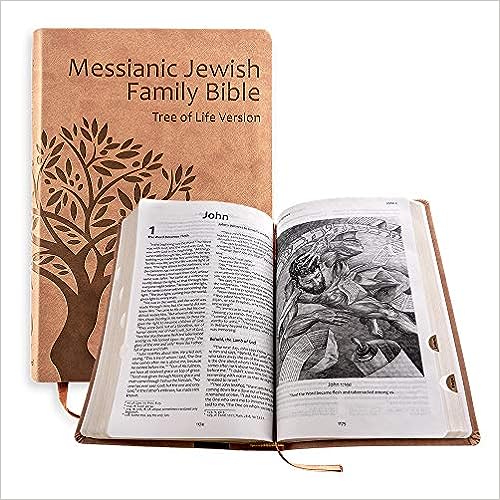 But if we then go to the Tree of Life Version, we see the Hebrew word come up: "whoever respects a mitzvah will be rewarded." In the amplified bible, it speaks about the commandment, almost sounds like if you follow "The Commandment," You WILL BE REWARDED. The Tree of Life Version says A mitzvah, what is it? A commandment, a rule of life from God will be rewarded. Being rewarded is to receive something for achievement, not necessarily for work done, no it says will be rewarded. Receiving a reward. Get a sticker on your attendance paper, and get a medal for coming in first, or for finishing the race. A reward. And the verse makes it really firm; it says not you might be, no it says you WILL BE REWARDED. What is it then that we are truly talking about, a mitzvah, what is it? Simply, over simply stated, a mitzvah is a commandment; you must do something, or you must not do something. And wow, that will already raise the hair on a lot of people; Christians, Judaics, and non-believers alike.
But if we then go to the Tree of Life Version, we see the Hebrew word come up: "whoever respects a mitzvah will be rewarded." In the amplified bible, it speaks about the commandment, almost sounds like if you follow "The Commandment," You WILL BE REWARDED. The Tree of Life Version says A mitzvah, what is it? A commandment, a rule of life from God will be rewarded. Being rewarded is to receive something for achievement, not necessarily for work done, no it says will be rewarded. Receiving a reward. Get a sticker on your attendance paper, and get a medal for coming in first, or for finishing the race. A reward. And the verse makes it really firm; it says not you might be, no it says you WILL BE REWARDED. What is it then that we are truly talking about, a mitzvah, what is it? Simply, over simply stated, a mitzvah is a commandment; you must do something, or you must not do something. And wow, that will already raise the hair on a lot of people; Christians, Judaics, and non-believers alike.
In the Bible, there is not one, but a total of 613 thou-shalt or thou-shalt-not mitzvot, or commandments. Now before I continue. Proverbs 13:13 does not say respect the mitzvot, plural, means all of them before you receive a blessing. It says respect, follow, be obedient to the mitzvah, and be blessed. Each and every mitzvah, each and every commandment is followed by blessing. How do I know? Because we just read it.
"He who [reverently] fears and respects the commandment [of God] is rewarded." "Whoever respects a mitzvah will be rewarded." "Obey it and succeed." No question about it. When God says "You shall not murder," oh yeah, right, that is easy, no jail time, freedom, no death penalty for me because I didn't murder anybody.
Indeed, that is truly how simple this is. I'm not talking about the books and books and books full of lifestyle rules that rabbis have written around the rules of God, I'm talking about the Mitzvot found in the word of God. 613 in total, in which we can find a subdivision for priests, for kings, for men, for women, for children.
It is one of the most misunderstood topics in our current-day church environment. So let me restate again our topic for today. What is our attitude? What, is our attitude, towards God! What is our attitude towards His declaration of dependence? What is our attitude towards His Holy Word? What is our attitude towards God, as our attitude towards God is truly reflected by our attitude towards His word.
Often we hear someone Jewish saying, "It's a mitzvah!" usually referring to a charitable, beneficial act performed by another person. However, while its Yiddish parallel "mitzveh" does deliver us this idea, the Hebrew word mitzvah does not mean "a good deed" as stated in that sense.
A mitzvah is not simply a "good deed," for example, to refrain from murdering or stealing. And similarly, the mitzvot which deal with feeding the poor, acting kindly to the stranger, or observing the Sabbath are much more significant in the Jewish tradition than Godly direction on how to be good.
Mitzvot are commandments, coming from God and intended for the Jewish people and those adopted into the people to observe. Those of us who live in the western world are often uncomfortable with the idea of being "commanded" to do something because it seems to deprive us of the right to choose how we behave.
In fact, the Torah itself says that when God gave the commandments, God declared, "Behold, I have set before you the blessing [of observing the commandments] and the curse [the potential punishment for failing to observe the mitzvot]–therefore, choose life!" It seems that even God recognized that the Jews had a choice in the matter and was clearly hinting at the right choice.
So what is it then that the whole broohaha is all about, why do we as Christians think that for us only the 10 commandments are important and even then we do not observe the Sabbath, and we surely do not keep it Holy. After the church service, we turn on the TV with all the influences of the world: political backstabbing, murder, mayhem, drugs, sex, and nudity.
This is truly what it comes down to; we follow the command of God, we are blessed, we do not follow the command of God, we are punished by not receiving the blessing which follows out of this commandment.
Within my studies which I've been working on for the last two or three years on and off concerning the commandments of God, I realized that if we really love the Lord as Messianics, Christians, Holy Spirit-filled people, we already follow most of the laws of God.
What is so hard about:
- To believe in God, and that he created all things.
- Not to believe in anything else other than God.
- To believe in God's Oneness.
- To fear God.
- To love God.
- Not to lust with our eyes and heart.
- Not eating any roadkill, or animals that we found dead.
- Not to blaspheme God.
- Following the 12 laws on unnatural sexual behavior.
And then we can go on and on and on.
The biggest point in all of this is the statement that God made himself: you want a blessing, Proverbs 13:13, you obey my will.
God's will for men is to be successful, to be healthy, to be in a relationship of trust and obedience.
Trust and obey for there is no other way than to be happy in Jesus, then to trust and obey.
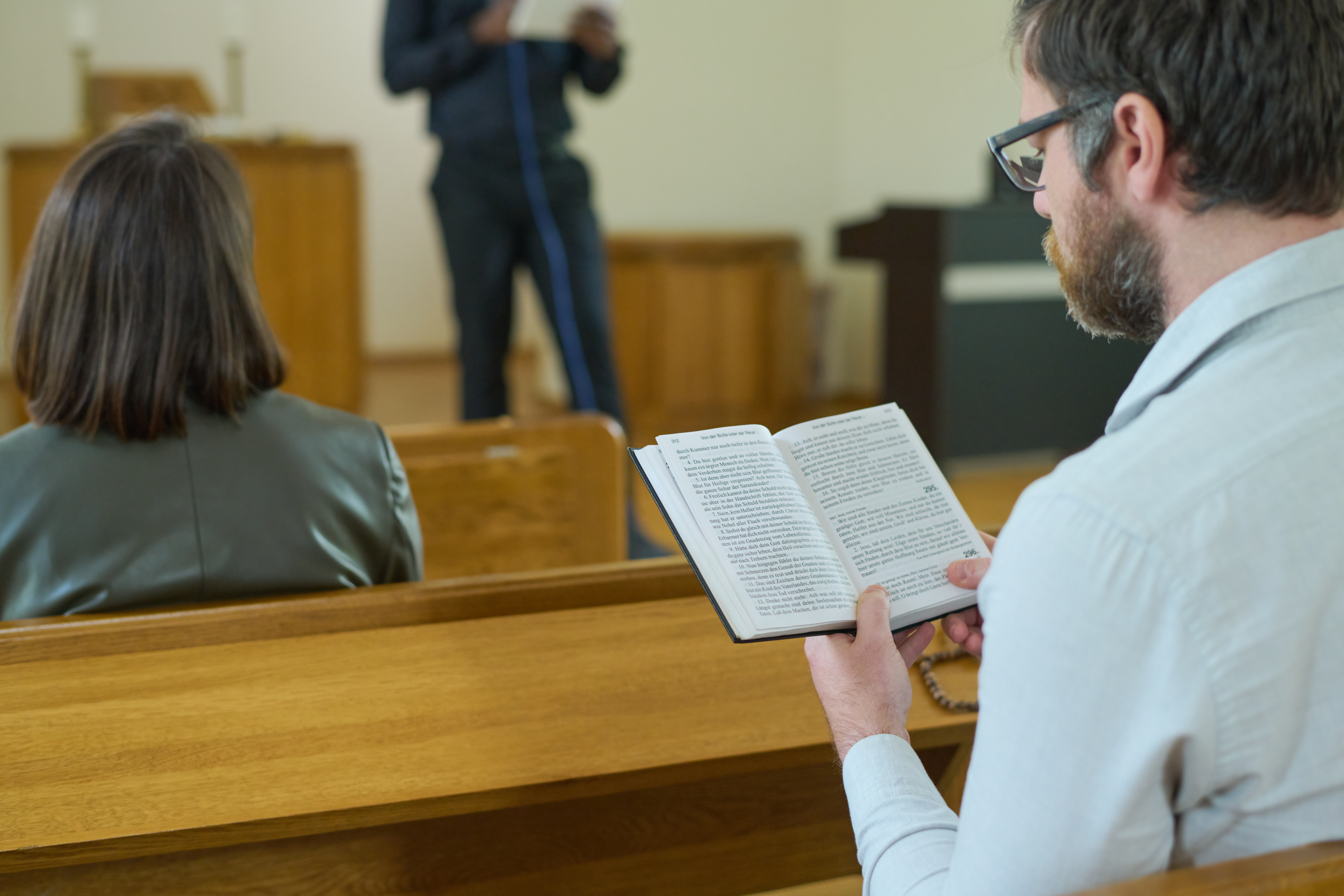 Attitude Part 2
Attitude Part 2
We live in very interesting days, or maybe I need to say very scary days. And now I just let you sit there with this single statement.
Previously, I started to talk to you about attitude and how our attitude towards following instructions gives us blessings or penalties. Or with more churchy words, how following God's commandments will give us blessings or curses. And yes, we already heard the cries coming up, but now we all live under the grace that Jesus provided. Yes, we are under grace, but for this series, we place that specific question on the back burner for a little bit; we will get to that point on a later day.
If we want to have a discourse on a topic, we do need to know our backgrounds before we can have an edifying conversation on this topic. We sing it so often in the church, that song that is woven through the messages the last couple of weeks.
Trust and Obey, 'Trust and Obey, because there is no other way to be happy in Jesus, then to trust and obey.'
Oh, and it is nothing new, of course, this is an old song. There are more songs like this. 'I surrender all, All to Thee, my blessed Savior, I surrender all.' Or with a more modern song that is so loved by many. 'Yes' from Shekinah Glory says; 'I'll obey Jesus, I won't stray, Jesus, this time I've made up in my mind, I'll say yes. My soul says yes, my mind says yes, my heart says yes, yes, I will Jesus, I'll do what you want me to do, I'll say what you want me to say, I'll go if you lead me, if you lead me I'll go, yes, I want to do your will, my soul says yes.' Then the word of the Lord says, 'There is more than I require of thee.' And the answer is still Yes. I truly enjoy all of these songs and I love to sing them. There has, however, been one great issue with all of them, and it is not the content of the lyrics. The issue is that for too many of us, these are just words, they are just songs; they are not confirmations of the way we are willing to change our attitude towards God.
Paul wrote a very interesting article in the letter to the Romans, we call this chapter 12. So let us read this together, Romans 12 from the Tree of Life Version:
Romans 12 (TLV)
Be Dead to Self
1 I urge you, therefore, brothers and sisters, by the mercies of God, to present your bodies as a living sacrifice—holy, acceptable to God—which is your spiritual service.
2 Do not be conformed to this world but be transformed by the renewing of your mind so that you may discern what is the will of God—what is good and acceptable and perfect.
3 For through the grace given me, I say to everyone among you not to think more highly of yourself than you ought to think—but to use sound judgment, as God has assigned to each person a measure of faith.
4 For just as we have many parts in one body—and all the parts do not have the same function—
5 so we, who are many, are one body in Messiah and everyone parts of one another.
6 We have gifts that differ according to the grace that was given to us—if prophecy, in proportion to our faith;
7 if service, in our serving; or the one who teaches, in his teaching;
8 or the one who exhorts, in his exhortation; the one who gives, in generosity; the one who leads, with diligence; the one who shows mercy, with cheerfulness.
9 Let love be without hypocrisy—detesting what is evil, holding fast to the good.
10 Be tenderly devoted to one another in brotherly love; outdo one another in giving honor.
11 Do not be lagging in zeal; be fervent in spirit. Keep serving the Lord,
12 rejoicing in hope, enduring in distress, persisting in prayer,
13 contributing to the needs of the kedoshim, extending hospitality.
14 Bless those who persecute you—bless and do not curse.
15 Rejoice with those who rejoice; weep with those who weep.
16 Live in harmony with one another; do not be proud, but associate with the lowly. Do not be wise in your own eyes.
17 Repay no one evil for evil; give thought to what is good in the eyes of all people.
18 If possible, so far as it depends on you, live in shalom with all people.
19 Never take your own revenge, loved ones, but give room for God’s wrath—for it is written, 'Vengeance is Mine; I will repay,' says Adonai.
20 Rather, 'If your enemy is hungry, feed him; if he is thirsty, give him a drink. For by doing so you will heap coals of fire upon his head.'
21 Do not be overcome by evil, but overcome evil with good.
A great word from Paul on the full surrender of our mind, spirit, and soul to God and to live a life for Him. Then when we read this and see how Paul thinks about serving God and how to act towards that which is coming our way, what is then modern men's attitude towards God.
a) Is your relationship with God on fire in the Holy Spirit? Do you daily read the words of God in your Bible or in books from Christian authors?Do you listen to His music and do your utmost to stay away from the negative influences of the world? Is your relationship deeply satisfying, and are you able to tell God everything that you have on your heart? Do you have constant communion with God through His Ruach Ha'Kodesh, His Holy Spirit, and a YES attitude?
b) Or maybe your attitude towards God is more like, 'Yeah, hmm, yes, I do my best, it is not bad. I read my Bible sometimes, and you know I like that song about the river of life too. I know God, you know, but we are just not that much in contact. Every day? No, I'm way too busy for that. I go to church on Sunday and sing and read and listen, but I'm so busy I need some me-time too.'
c) Then the c category of people: 'Oh yes, I'm saved, hallelujah, and I went to church. Yeah, but not anymore, it just... no, it doesn't do that much for me anymore. I go on Easter and Christmas, I listen to K-love now and then, but yeah, that's enough for me. Yeah, you might call it that, the fire is not burning for me anymore. Hey, come on, I know God, but with me living in America and God in Africa, that communication is just over a too much of a distance.'
d) Then lastly, we have the person like this, the one that has heard of God, has heard about Jesus on T.V. and in the coffee shop, and in the newspaper. God and with Jesus, grace yeah cool you know, and Buddha, Allah, Shiva, Confucius, Joseph something, yeah, they are all good people. All these people, you know, they all teach you to be good, and then you all will be with your God one day. We need to be respectful to each other, live and let live you know, let them marry, doesn't matter. You need to look at yourself, are you good, do you feel your inner peace, have you found the sanctuary in you? Come sit here with me and share some of this electric magnetic spiritual transcendental power together.
Thus for today, we really have four ways we can start to look at the message. We can look at it with the eyes of each and everyone of the four I just described.
Zealously on Fire through the Holy Spirit, guided by God, each and every day decisions have already been made.
Wanting to live a life for God and active in His Word, but burning Low, with some hard decisions to make now and then.
Too much to do, too much work and too many decisions to make, just cannot have all that can and cannot controlling now, it is too limiting. The fire is nothing more than smoldering coals with some hiss now and then.
The last attitude we talked about, I would say; 'Fire, what there is fire, where is the fire, oh my God, fire, call 911, fire, oh my, oh my, fireeee.'
What category do you belong to? It is not about being perfect in any of them; it is about the attitude that is associated with them. What category do you belong to? Only God is perfect, which makes Him the Holy one. God is Holy. We as believers have been made Holy by Him through the acceptance of His Son Yeshua Ha'Mashiach. When we come into heaven with Him, we will receive this holy and perfect body. In the meantime, on this earth, we do our best to come closer and closer to Him, to live life more and more according to His Holy Word, growing into this form of perfection that we call Holiness. This growing into His image, this growing into Holiness is what we call progressive sanctification. Thus, the question still stands, what category do you belong to?
It is sad to say that most Christians still live life in the second or third category. There are also a lot, and I mean a lot of so-called Christians that find themselves in the fourth category. Psalm 103 tells us more.
When David went to the kingdom of Achish to flee from King Saul, he was recognized by the servants of Achish. Because of this and his fear for the king, he changed his attitude and pretended that he was a crazy or insane person drooling. All this is according to 1 Samuel 21:10-15.
Ah, but you might say there we are talking about Abimelech and not Achish. That is because Abimelech is most likely not a given name when we look at the word and splice it up into two syllables we see Abi/avi and Melech. Because we talk about it so much, we know that Melech means king, as in the blessings Melech A'Olam king of the world. The Hebrew does not use any vowels, thus we spell Abimelech Aleph Bet Yot Mem Lamet Kof Sofit (which makes the ch sound as in bach). Then we have the letters Aleph Bet, which is the noun meaning father. The word ab is not like our word for father; it is also used as in our idea of founding fathers, thus not necessarily reserved for the male parent and used metaphorically for other people, but rather a word of unknown and unparalleled meaning, which expresses respect to persons of authority, including the male parent. The Yod letter that follows this makes the ab part possessive as in father of or my father. Then in this, we understand the Abimelech is the title for the king as the father, the ruler, the magistrate of this land.
Ok then wow, now Psalm 34 Tree of Life Version. But before we read this, I would like to provide you with the knowledge of a word that might be new for you in this text. Kedoshim: means the people that live holy lives, the holy ones, those set aside by God, which through Christ could mean you, as the Jews were the people set aside by God.
Psalm 34 (TLV)
Taste and See
1 Of David when he feigned insanity before Abimelech, who drove him away, and he left.
2 I will bless ADONAI at all times. His praise is continually in my mouth.
3 My soul boasts in ADONAI. The humble ones hear of it and rejoice.
4 Magnify ADONAI with me and let us exalt His Name together.
5 I sought ADONAI, and He answered me, and delivered me from all my fears.
6 They who looked to Him were radiant, and their faces will never be ashamed.
7 This poor man cried, and ADONAI heard, and saved him out of all his troubles.
8 The angel of ADONAI encamps around those who fear Him, and delivers them.
9 Taste and see how good ADONAI is. Blessed is the one who takes refuge in Him.
10 Fear ADONAI, His kedoshim, for those who fear Him lack nothing.
11 Young lions may lack, and go hungry, but those who seek ADONAI want for no good thing.
12 Come, children, listen to me: I will teach you the fear of ADONAI.
13 Who is the one who delights in life, and loves to see good days?
14 Keep your tongue from evil, and your lips from speaking treachery.
15 Depart from evil and do good. Seek shalom and pursue it.
16 The eyes of ADONAI are on the righteous, and His ears are attentive to their cry.
17 The face of ADONAI is against evildoers, to cut off the memory of them from the earth.
18 The righteous cry out, and ADONAI hears, and delivers them from all their troubles.
19 ADONAI is close to the brokenhearted, and saves those crushed in spirit.
20 Many are the distresses of the righteous, but ADONAI delivers him out of them all.
21 He keeps all his bones, not one of them is broken.
22 Evil kills the wicked those who hate the righteous will be held guilty.
23 ADONAI redeems the soul of His servants no one who takes refuge in Him will be held guilty.
Why would it be then that for many a Christian, the attitude they have is only the b. version or maybe even c. or d.?
Well, they will say we have a relationship with God, and our attitude towards him is so that we know him, but it is hard in this world. The relationship with God is strained, to say it nicely; it is not rich and overflowing. When they describe their lives, you hear words as hard, difficult, attacked, defeated, discouraged, yes even this, we will hear depressed.
When under so much attack, running, fleeing, what did David say again?
“2 I will bless ADONAI at all times. His praise is continually in my mouth. 3 My soul boasts in ADONAI. The humble ones hear of it and rejoice. 4 Magnify ADONAI with me and let us exalt His Name together. 5 I sought ADONAI, and He answered me, and delivered me from all my fears.”
For so many Christians, this is just not true; they are just not able to say, “In All You Do, Praise The Lord.”
In the Drash on the Mount, the Sermon on the Mount, Jesus said, “Rejoice and be glad, for your reward in Heaven is great.”
But then again, for many Christians, they do not experience a lot of joy.
In the first letter of Peter in the first chapter, we then read:
1 Peter 1:4-6 (TLB)
4 And God has reserved for his children the priceless gift of eternal life; it is kept in heaven for you, pure and undefiled, beyond the reach of change and decay. 5 And God, in his mighty power, will make sure that you get there safely to receive it because you are trusting him. It will be yours on that coming last day for all to see. 6 So be truly glad! There is wonderful joy ahead, even though the going is rough for a while down here.
But still, many Christians do not see the joy in the victory that lays ahead of them, and they are not able to Praise the Lord in all they do.
In All You Do, Praise the Lord.
The question then becomes why?
Well, for most, it is because of bad habits, habitual and many times sin that they are not aware of or are badly informed about that controls their lives. It is like a room that is to store the blessings through the Holy Spirit, but then this room is still occupied by those things that make the Ruach cringe and turn away from.
But guess what? They are not aware of this or that this is sin. It still grieves the Holy Spirit, and the place that could be occupied by blessings from God is now ignored and not used. They are ruled by the flesh, not by the Spirit. Many in this group of people are doctrinally illiterate, and many times they have been deceived by false teaching.
Thus, there is indeed not much spiritual fruit on which they can be recognized as followers of Yeshua; not much love, joy, peace, patience, kindness, goodness, faithfulness, gentleness, self-control. Because it was Yeshua who said that by the fruit you carry, you will be recognized; the apple tree does not carry oranges. You just don’t see a lot of Holy Spirit fruit because of sin.
And then there are others. They are not really ruled by their flesh, and they love the Lord, and still, they do not enjoy that burning fire relationship with God. Then what is missing? Where is the Holy Spirit Fire? Where is the abundance, the joy, the happiness that we so long for?
The quick and dirty answer is that when in a tough spot, they might offer a quick prayer to the Lord, but they are still not living their lives for Him. And they might not even realize it. As a result, God is not blessed; God is not given All the Glory and All the Praise.
Start blessing God.
Your going to church is like going to the psychiatrist; you feel happy for 30 minutes or an hour, you empty your burlap sack with one rock of experience after another. Then when you go to the psychiatrist, you come in carrying that burden; you empty that bag, and you feel that a weight is off your shoulders. Wooohooo, that feels great. And then your time is up, and you need to put them all back in the sack again. We are doing the same in church; we are laying all our rocks on the altar of God's grace, and then before we go, we do not know how fast we need to run to pick them all back up again. We do not have an intimate relationship with God in which we trust Him so much that we just can leave those rocks at the altar of the cross.
God then turns them into something different, an experience instead of a hurt or burden. Like a rock is being copied and made out of paper-mache. It is still the same size and still the same shape and feel, only, only the weight is gone.
The question to get to a closer and better relationship, A Holy Spirit Fire relationship, is all our surrender to His will, “Yes,” “I surrender all,” “trust and obey.” Not a pick and choose, not I don't really like that, this is what I like, not that, this, I surrender All.
Attitude Part 03
On the Radio, we were able to listen to the message from Attitude Part 02 during our time of prayer and Sunday-school. And now, we are continuing with part 03. In the first week, we talked about our attitude and our attitude towards God and His word. God's word represents His declaration of our dependence on Him. As Christians, we have said, "Lord, I surrender all, I give my life to you," and we also say, "Lord, make me, break me, mold me, shape me," and we declare, "Yes, Lord, yes, yes, yes, I want to do what you want me to do." These are sentences and paraphrases of songs we have sung.
With this understanding of our commitment to God's word and our declaration of dependence, we see a common thread throughout this first message and the series: the word of Proverbs 13:13 (TLV), which says, "Whoever despises instruction will pay a penalty, but whoever respects a mitzvah will be rewarded." The Amplified Bible translates it as, "Whoever despises the word and counsel [of God] brings destruction upon himself, but he who [reverently] fears and respects the commandment [of God] is rewarded." Or in the paraphrased version of the Living Word Bible, "Despise God's Word and find yourself in trouble. Obey it and succeed."
We discovered that many people might think they don't despise God's word, but in reality, they have an aversion to it or don't take it seriously when it comes to following God's instructions and behaving according to His will. We found that as modern Christians, we often have a pick and choose attitude towards God's word, missing out on the blessings attached to following His commandments.
The Bible gives us the promise that if we follow God's commandments, we will be blessed. However, if we neglect His commandments, we will miss out on these blessings. To illustrate, we can compare it to a coach, trainer, or referee instructing us to run ten rounds around the field before training. If we ignore the instruction and run fewer rounds, we face consequences like not being allowed to play on the next game day. Our teammates, who follow the instructions, improve their stamina, strength, and endurance, while we suffer physical consequences like weight gain, weakened muscles, decreased stamina, and lack of motivation.
The moral of this story is that following God's commandments leads to blessings like a stronger, leaner, and healthier life. Ignoring His commandments leads to negative consequences such as deteriorating health, decreased stamina, laziness, and even depression.
It is crucial to follow God's Mitzvot, and the text promises, "YOU WILL BE REWARDED." Some Christians argue that living in the season of grace with Jesus means they don't have to follow the Ten Commandments or God's will. However, as we discussed, this is a misconception. Even if we keep the Sabbath, we often fail to keep it holy, engaging in ungodly activities like watching TV or shopping.
We concluded that as Christians, we must avoid a pick and choose attitude towards God's word. Instead, we should embrace it wholeheartedly to receive the blessings that God wants to share with us. Throughout our discussions, we also saw how much God loves us.
John 3:16-18 (TLV)
16 "For God so loved the world that He gave His one and only Son, that whoever believes in Him shall not perish but have eternal life. 17 God did not send the Son into the world to condemn the world, but in order that the world might be saved through Him. 18 The one who believes in Him is not condemned; but whoever does not believe has been condemned already, because he has not put his trust in the name of the one and only Ben-Elohim.
God provided His Son to the world to find its way back to Him, to place its trust in the name of the Son of God, Ben-Elohim. Yeshua, Jesus showed us the way to God the Father, He showed us His love for His and your Abba in being in continuous obedience to His will, His Mitzvah, even into His death.
We continued in this second week by looking at the 4 different attitudes of the people who call themselves Christian. We stated them as four levels of being on fire for the Lord. If you have missed the message, then I would highly recommend reading the text or even better, ordering the message on CD because you will get so much more than just the text.
- Zealously on Fire through the Holy Spirit, guided by God, each and every day decisions have already been made.
- Wanting to live a life for God and active in His Word, but burning low, with some hard decisions to make now and then.
- Too much to do, too much work, and too many decisions to make, just cannot have all that can and cannot control now, it is too limiting. The fire is nothing more than smoldering coals with some hiss now and then.
- The last attitude we talked about, I would say; "Fire, what there is fire, where is the fire, oh my Gooooooodddddddd, fire, call 911, fire, oh my, oh my, fireeeeee."
Today we continue, looking at our attitudes toward God and His attitude toward us with the scripture in hand, being on fire for God in the Holy Spirit.
To answer how this is possible, I would like to use the words of the great Chinese evangelist Watchman Nee. He writes in "The Spiritual Man" volume 2 Part 4 about the Spirit in chapter 1. And I paraphrase because I admit it is not truly easy reading.
As most believers today, we lack the knowledge about the existence of the human spirit. Many are unaware that beside their mind and emotions, they have a spirit. Even when many have heard of this spirit, many of them consider their minds and emotions as the will of the spirit.
Wow, that sounds familiar, isn't it? Okay, let's continue.
This ignorance affects the cooperation with God, the control over self, and the war against Satan, which all require the work of the spirit. It is very, very important to recognize that a spirit exists within the individual, something extra beside thoughts, knowledge, and the imagination of our mind. Something that goes further than affection, the sensation, and the pleasure of emotions, something that goes beyond desire, and the decisions and the actions of our will.
The spirit and the soul of those who are not saved are fused together, and in that, they do not know of the existence of a dead spirit. On the other hand, they are very much aware of the very strong sensations of their soul in love, lust, and so many more emotions, which also clearly foolishly continue after they are saved.
This is why so many believers sometimes walk in the spirit and sometimes in the flesh even though they have received spiritual life in the Holy Spirit. The level of ignorance towards the demand, the movement, the supply, the sense, and the direction of the spirit concerning the way the Spirit operates hinders the growth of the Holy Spirit in the believer. It hinders the victory over sin, and many are lured into the so-called "Spiritual" Bible knowledge with their minds or the burning sensation in the bosom, or in their lives with that creating this with their own willpower instead of feeding the Spirit of God.
This is why every sinner must be born again in Christ. We must be born from above because our spirit is a fallen spirit and bound to death. As soon as the sinner believes in our Lord Yeshua Ha'Mashiach, Jesus the Christ, he is born again. God grants him His uncreated life so that the sinner's spirit will be made alive again. God's regeneration starts from within and works out to the whole body. Unlike Satan's, whose work starts on the outside with attacks moving in deeper and deeper until all is lost.
As it is written in Ezekiel 36:26 and in John 3:6, the born-again person will receive a spirit that is made alive, the word says, "A new spirit I will put in you" - "That which is born of the Spirit is spirit." That new life, this new spirit, has its focus on God. It is not what we previously possessed; it is what is regenerated by God and in that, it belongs to God as we read in 2 Peter 1:4, and with the words of 1 John 3:9, it "Cannot sin." But our spirit, with whom it is fused, is still able to sin and in need of being made Holy (1 Thessalonians 5:23).
Watchman Nee "The Spiritual Man" V.2 P.2 Chapt. 1. This is why even the most zealous Christian will be able to fall back but is then able to stand back up again and say yes to God. The fire in his/her life grows stronger and stronger each day. This is what we talk about so frequently and then still not enough, that which we call Progressive Sanctification. This brings me to share with you one more time those great words from the letter to the Romans.
Romans 12 (TLV)
Be Dead to Self
1 I urge you, therefore, brothers and sisters, by the mercies of God, to present your bodies as a living sacrifice—holy, acceptable to God—which is your spiritual service. 2 Do not be conformed to this world but be transformed by the renewing of your mind, so that you may discern what is the will of God—what is good and acceptable and perfect. 3 For through the grace given to me, I say to everyone among you not to think more highly of yourself than you ought to think—but to use sound judgment, as God has assigned to each person a measure of faith. 4 For just as we have many parts in one body—and all the parts do not have the same function— 5 so we, who are many, are one body in Messiah, and everyone is a part of one another. 6 We have gifts that differ according to the grace that was given to us—if prophecy, in proportion to our faith; 7 if service, in our serving; or the one who teaches, in his teaching; 8 or the one who exhorts, in his exhortation; the one who gives, in generosity; the one who leads, with diligence; the one who shows mercy, with cheerfulness. 9 Let love be without hypocrisy—detesting what is evil, holding fast to the good. 10 Be tenderly devoted to one another in brotherly love; outdo one another in giving honor. 11 Do not be lagging in zeal; be fervent in spirit. Keep serving the Lord, 12 rejoicing in hope, enduring in distress, persisting in prayer, 13 contributing to the needs of the kedoshim, extending hospitality. 14 Bless those who persecute you—bless and do not curse. 15 Rejoice with those who rejoice; weep with those who weep. 16 Live in harmony with one another; do not be proud, but associate with the lowly. Do not be wise in your own eyes. 17 Repay no one evil for evil; give thought to what is good in the eyes of all people. 18 If possible, so far as it depends on you, live in shalom with all people. 19 Never take your own revenge, loved ones, but give room for God’s wrath—for it is written, “Vengeance is Mine; I will repay,” says Adonai. 20 Rather, “If your enemy is hungry, feed him; if he is thirsty, give him a drink. For by doing so you will heap coals of fire upon his head.” 21 Do not be overcome by evil, but overcome evil with good.
I pray that with the words we heard from Watchman Nee and with the words of the letter to the Romans, we now have a clearer understanding of what it means to be dead to self, so that we are able to grow more and more the fruit of the Holy Spirit.
Galatians 5:22-23 (TLV) 22
But the fruit of the Ruach is love, joy, peace, patience, kindness, goodness, faithfulness, 23 gentleness, and self-control—against such things there is no law.
The more we are filled with the Spirit of God, the Holy Spirit, the Ruach Ha'Kodesh, the more we will see this fruit in the lives of the Christian, in which we are changed from a Christian with a lowercase 'c' to a Christian with a capital 'C,' a follower of the Messiah, a Messianic believer with a capital 'M' instead of a lowercase 'm.'
There have been many messiahs, and still, people designate individuals as being the messiah or the new messiah, but there has only been one Yeshua Ha'Mashiach, Jesus THE Messiah.
Being on fire in the Holy Spirit means to have a continuous focus on improving our lives to live it closer and closer to God, progressive sanctification. Yes, I understand, sometimes it is three steps forward and falling one or two steps back, but surely, and slowly moving upward, bound for Glory.
The part that will make it so very personal for each and every one of us is, how much do you walk in obedience to His word? How much do you seek out His word? How much of this word have you found to be altered by man to progress a political agenda? How much of God's truth have you allowed to enter your life? Are you receiving all the blessings that God has prepared for you, or are sitting on the sideline while the super bowl is played out?
Yes, indeed, the super bowl, because there is no other game planned after this one anymore, this is it, a win or a lose. Do you get the most out of this game? What do you do with the talent that God has given you?
Matthew 13:1-9, 13, 14 (TLV)
Simple Stories, Profound Truths
1 On that day, after Yeshua left the house, He was sitting by the sea. 2 And large crowds gathered around Him; so He got into a boat and sat down, and the whole crowd stood on the shore. 3 And He told them many things in parables, saying, “Behold, a sower went out to spread some seed. 4 As he was scattering the seed, some seeds fell by the road, and the birds came and ate them up. 5 Other seeds fell on rocky ground, where they didn’t have much soil. They sprang up immediately because the soil wasn’t deep. 6 But when the sun came up, they were scorched, and because they had no roots, they withered away. 7 Other seeds fell among the thorns, and the thorns grew and choked them out. 8 But others fell on good soil and were producing fruit. They yielded a crop—some a hundredfold, some sixty, some thirty. 9 He who has ears, let him hear.”
13 For this reason, I speak to them in parables, because seeing they do not see, and hearing they do not hear, nor do they understand. 14 “And in them, the prophecy of Isaiah is being fulfilled, which says, ‘You will keep on hearing but will never understand; you will keep looking, but will never see.’”
Jesus did not live by the words of what we call the New Testament; Jesus lived by the words of the Torah and what we call the Old Testament. As so many of you know, I really don't like this distinction because it is all one testament, one testimony of God's love for mankind.
Jesus shows us that the words of the Kingdom of God, eternity with Him, are foretold and fulfilled in the words of prophecy. This is why He then follows up with the disciples and explains to them;
Matthew 13:18-23 (TLV)
Parable of the Sower Explained
18 “You then, hear the parable of the sower. 19 When anyone hears the word of the kingdom and doesn’t understand it, the evil one comes and snatches away what was sown in his heart. This is the one having been sown along the road. 20 “The one sown on rocky ground, this is the one who hears the word and immediately receives it with joy. 21 Yet he has no root himself but lasts only a short while, and when trouble or persecution comes because of the word, immediately he falls away. 22 “But the one sown among the thorns, this is the one who hears the word; and the worries of the world and the seduction of wealth choke the word, and it becomes unfruitful. 23 “Now the one sown on the good soil, this is the one who hears the word and understands. He indeed bears fruit, yielding a hundredfold, some sixty, some thirty times what was sown.”
Those who have not received Christ as their Lord and Savior also do not experience that regeneration of the spirit and the fusing with the Holy Spirit and thus indeed hear the word, but are unable to receive it in any form of soil in which it might be able to grow.
Those who have received the spirit but have not received the full awareness of the state of their own spirit and are still much moved by self are like the seeds on the rocky ground. People that have received the words of Proverbs 13:13 but still say, "Oh no, 10 rounds, that is not for me, I'll wait for later." Those people that as verse 22 says, "the one who hears the word; and the worries of the world and the seduction of wealth choke the word." Those people are unfortunately so many that are what we call backslidden and are so concerned by the world that the fruit and expansion of the Kingdom become smothered.
These are the people that run off to the restroom and come back at the last moment and run only the first or the last two rounds, and with that are smothered by the weeds, or with other words, are back on the bench.
The last group of people is what this is all about, those that are on Fire in the Holy Spirit. Those that say, "Oh my Lord, I'm oh, ahhh, hmmm, Lord, I don't know how, but I did it, ten rounds, pffff, I never thought I would make it, ohhh, hmmm, aahhh, but Hallelujah I did it. Thank you, Jesus, Philippians 4:13, 'I can do all things through Christ who strengthens me.' Amen."
Oh, Hallelujah, Glory to God!
As we saw in the first week of our mini-series on receiving the blessings of God, we walk in obedience, live life in integrity, and trust Him with all that we have in our lives.
Proverbs 3:11-12 (CEB)
11 Don’t reject the instruction of the Lord, my son; don’t despise his correction. 12 The Lord loves those he corrects, just like a father who treats his son with favor.
Now, let's read Proverbs 3 verses 1 to 10, which truly state our motto of life: "In All You Do, Praise The Lord." These verses provide us with four key words that will bring forth the best in each and every one of us who is walking and moving in His word, in each and every one of us on Fire in the Holy Spirit, and in His name.
Proverbs 3:1-10 (TLV)
In All Your Ways Acknowledge Him
1 My son, do not forget my teaching, but let your heart keep my mitzvot. 2 For length of days and years of life, and shalom they will add to you. 3 Let kindness and truth never leave you— bind them around your neck, write them on the tablet of your heart. 4 Then you will gain favor and a good name in the eyes of God and man. 5 Trust in Adonai with all your heart, lean not on your own understanding. 6 In all your ways acknowledge Him, and He will make your paths straight. 7 Do not be wise in your own eyes; fear Adonai and turn away from evil. 8 It will be healing to your body and refreshment to your bones. 9 Honor Adonai with your wealth and with the first of your entire harvest. 10 Then your barns will be filled with plenty, your vats will overflow with new wine.
Obedience – "My son, do not forget my teaching, but let your heart keep my mitzvot." (Vs. 1) – In order to practice obedience to God’s Word, we must first know what God’s Word says. As we read the Bible and learn more about God, we can begin to keep His commands in our hearts and know them. Then, when we know God's commandments and their meaning for our lives, we are able to eventually get better and better at obeying Him. As a result, His commands will, "For length of days and years of life, and shalom they will add to you." (Vs. 2) give a better, healthier, longer, more peaceful, and blessed life.
Integrity – "Let kindness and truth never leave you— bind them around your neck, write them on the tablet of your heart." (Vs. 3) Relationships are more important than anything else in this life. A relationship with God first, and then with other people, is the key to our existence as a human being; no person is created to live their life in complete isolation. When you act in love and faithfulness, you build your integrity and positively impact all of your relationships. As a result, "Then you will gain favor and a good name in the eyes of God and man." (Vs. 4)
Trust – "Trust in Adonai with all your heart, lean not on your own understanding." (Vs. 5) God wants us to trust in Him and rely on Him in everything we do, instead of trusting and relying on ourselves. When you trust God with all of your heart, you will learn to trust in Him in good times and bad. And as a result, "He will make your paths straight." (Vs. 6)
Discernment – "Do not be wise in your own eyes; fear Adonai and turn away from evil." (Vs. 7) Most of us do know the difference between right and wrong. God’s Word and the Holy Spirit convict us of sin in our lives and show us the things we need to change, repent of, and should avoid. As we turn away from evil and move closer and closer towards God, "It will be healing to your body and refreshment to your bones." (Vs. 8)
Giving – "Honor Adonai with your wealth and with the first of your entire harvest." (Vs. 9) – When we give God the "firstfruits of our crops," we are giving Him our best in terms of our time, money, and talent. We honor Him when we have a generous heart and give God the best that we have to offer. As we say it so many times, giving the best for the Highest. As a result, "Then your barns will be filled with plenty, your vats will overflow with new wine."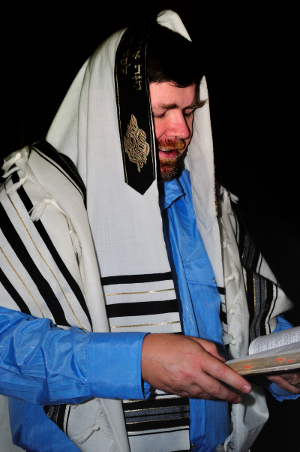
When we follow God’s principles, God's commandments, God's Mitzvot in our lives, we can, no, I need to say, we must prepare ourselves to be ready and receive His mighty, wonderful, and glorious blessings. Oh, Hallelujah! He loves us so much more than we can possibly imagine, and He wants nothing more than to extend His blessings upon our lives, to provide us with happiness, no, not just happiness, but real Joy as we read in Galatians 5, which comes from the Holy Spirit.
God wants us to receive a complete and great level of fulfillment in this life, but we have to do our part. Praise Him for His goodness and for His grace today, and thank Him for all of your blessings already received and the ones yet to come. Walk in His Light and in obedience to His word.
Okay, then let's read it one more time together, those words of promise for all that walk in obedience to His word.
Proverbs 13:13 (TLB)
"Despise God’s Word and find yourself in trouble. Obey it and succeed."
Amen!
Note: This article is rewritten from the sermon notes, this is not a transcript nor a written out sermon. We believe that it is the Holy Spirit that speaks through the preacher and it is that Holy Spirit that convicts and leads to what the congregation needs to hear.
God Bless you.
Pst. Chris.
Sermon Notes by Pastor Christiaan J. de Ruiter are licensed under CC BY-NC-SA 4.0



Note: The content provided here represents the foundational notes for a sermon or teaching, and should not be misconstrued as a complete transcript or a fully articulated sermon.
It is our profound belief that the Holy Spirit operates through the preacher, guiding and inspiring the delivery to resonate with the needs and convictions of the congregation.
These notes typically form the basis for a 30 to 45-minute sermon or teaching, allowing the Holy Spirit's guidance to shape the specific message and application to the gathered believers. The essence of these teachings is not merely in the written words but in the inspired delivery and connection with the congregation, led by the Spirit.
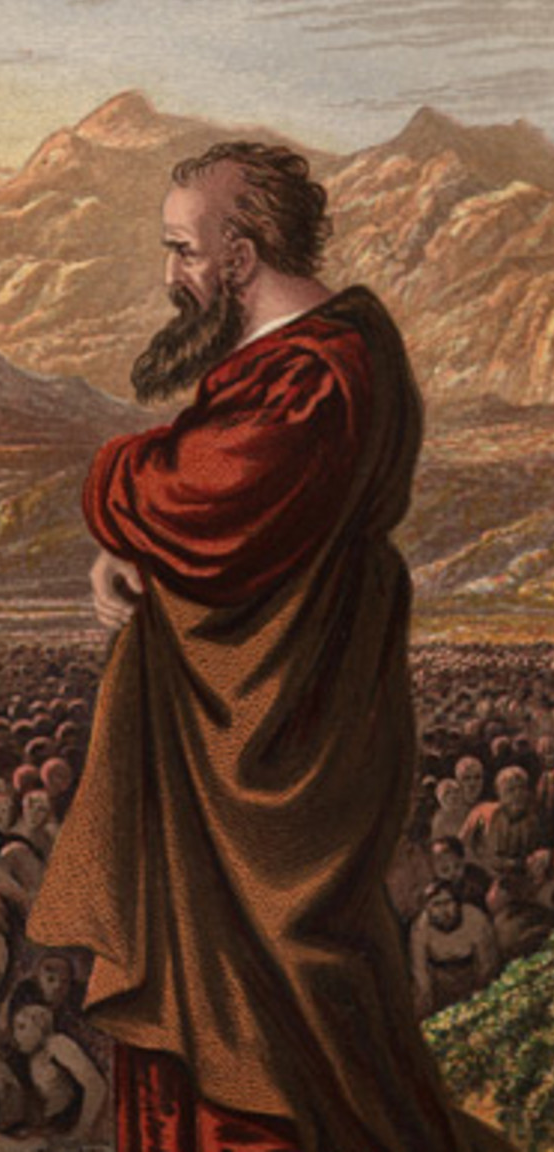








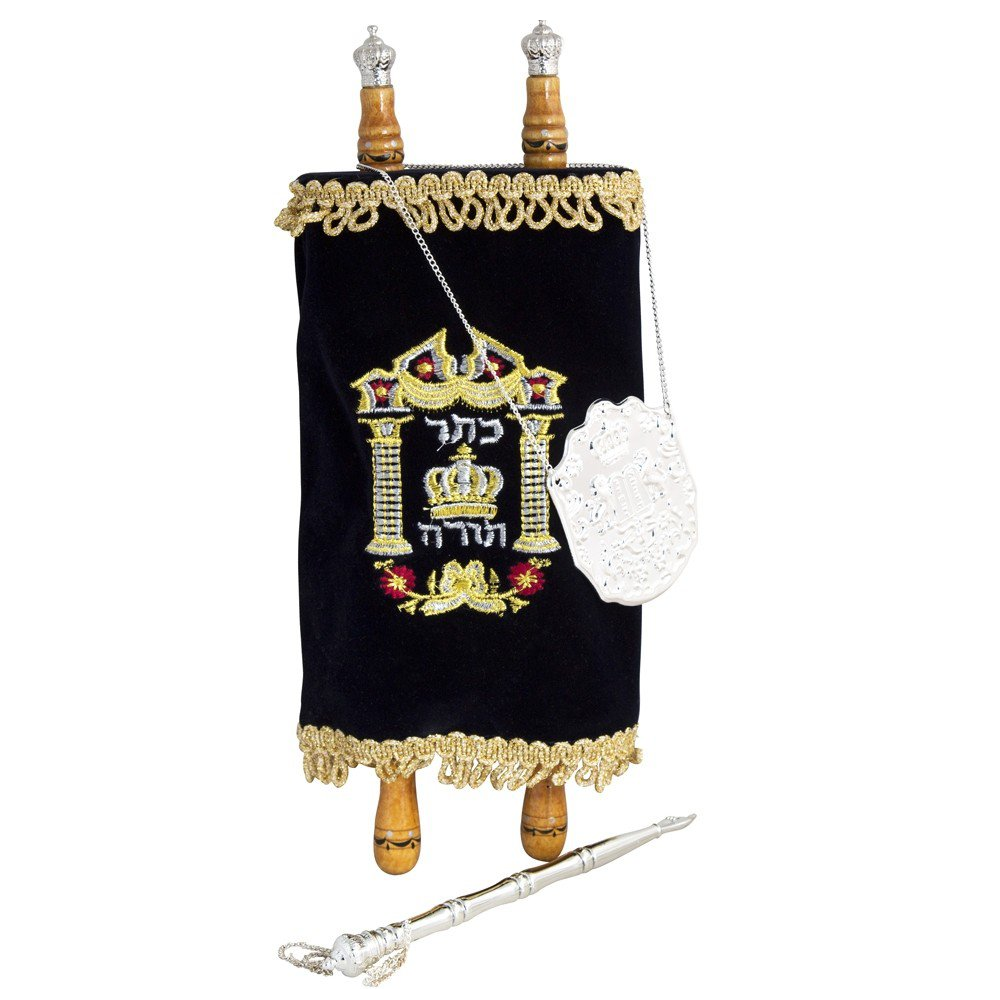
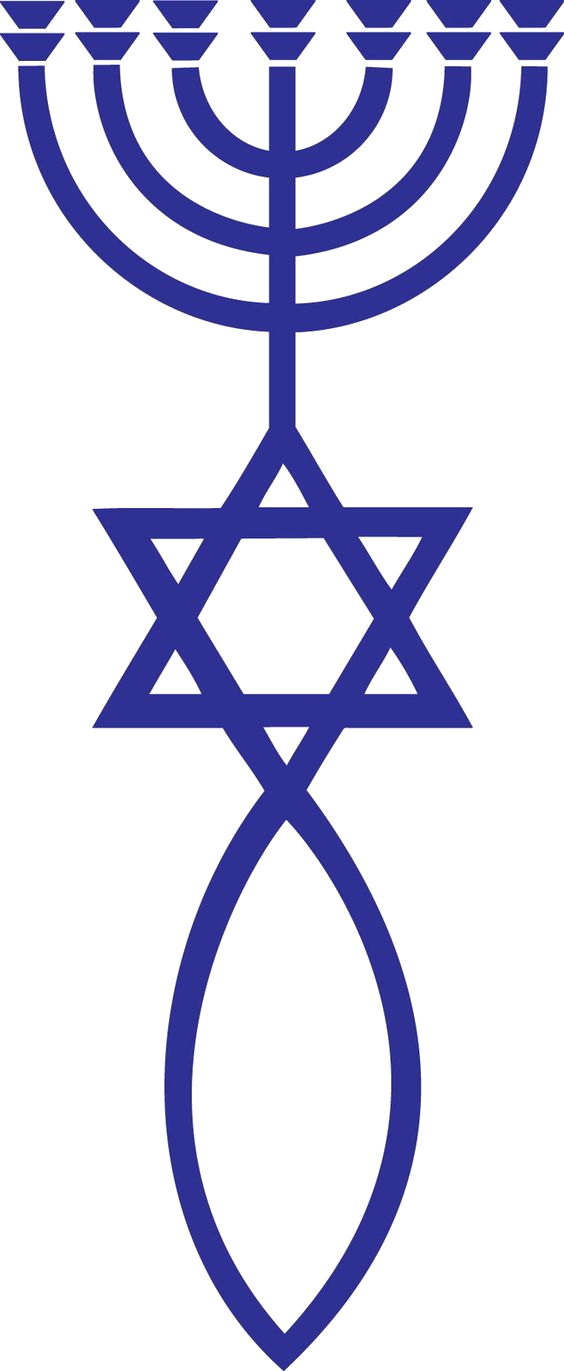






 Attitude Part 01
Attitude Part 01
 Attitude Part 2
Attitude Part 2


















